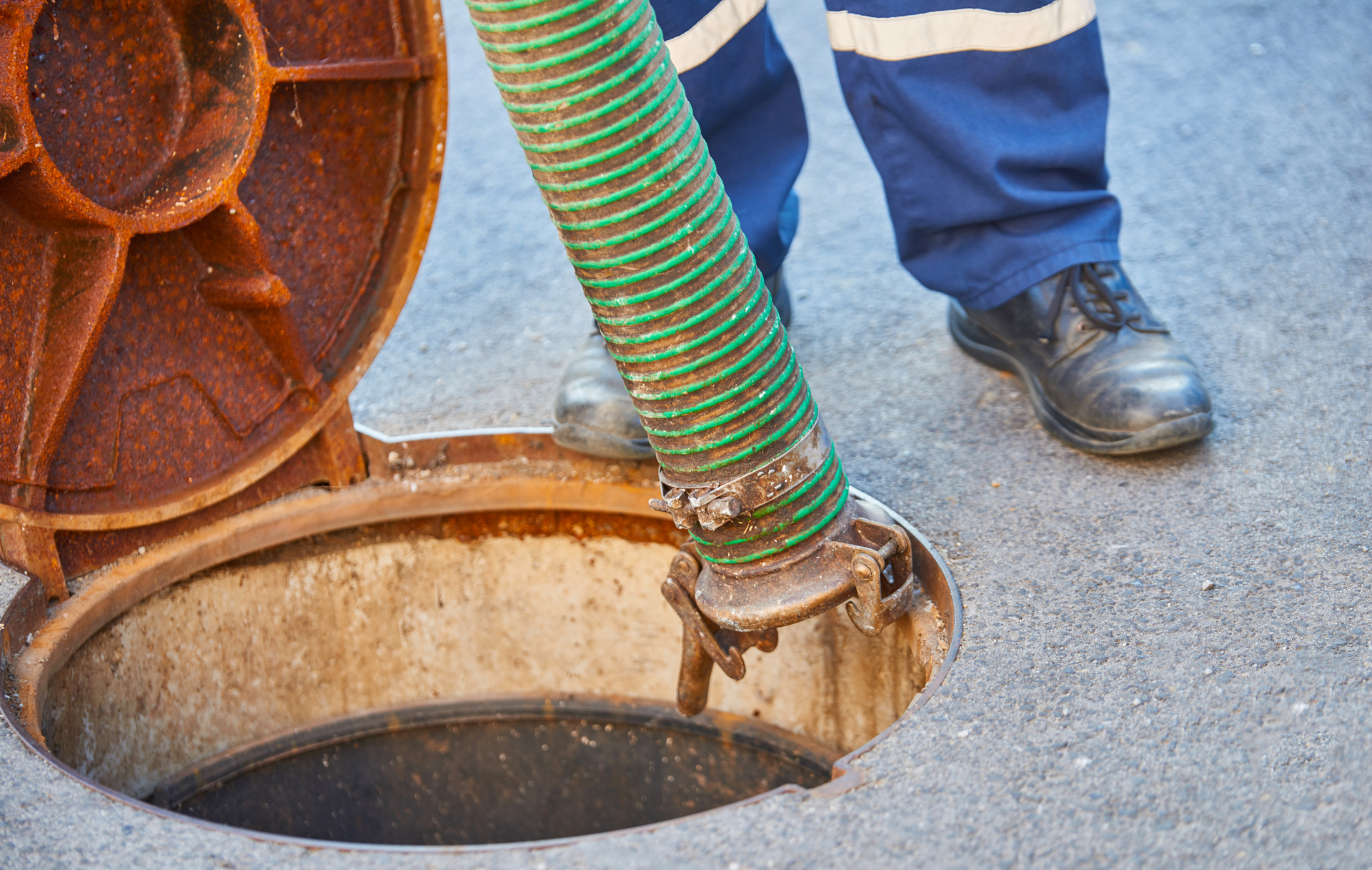Don't Flush Your Money Away: Tips for Maintaining a Healthy Septic System in Oxford
November 2, 2023
Don't Flush Your Money Away: Tips for Maintaining a Healthy Septic System in Oxford
Owning a home with a septic system in Oxford, Mississippi, comes with its own set of responsibilities. Unlike homes connected to municipal sewer systems, where waste disposal is largely out of sight and out of mind, septic system owners need to be proactive in maintaining their systems. Neglecting septic system care can lead to costly repairs and environmental problems. In this comprehensive guide, we'll explore actionable maintenance tips for homeowners in Oxford to ensure their septic systems run smoothly and efficiently.
The Importance of Regular Septic System Maintenance
Before diving into the tips, let's emphasize why regular septic system maintenance is essential:
1. Cost Savings: Regular maintenance can help identify and address issues early, preventing expensive repairs or system replacements down the line.
2. Environmental Protection: A malfunctioning septic system can contaminate groundwater and nearby water bodies, posing environmental hazards. Proper maintenance ensures responsible waste treatment.
3. Property Value: A well-maintained septic system enhances your property's value and appeal to potential buyers.
4. Peace of Mind: Knowing your septic system is in good condition provides peace of mind and reduces the risk of unexpected sewage backups.
Actionable Septic System Maintenance Tips
1. Schedule Regular Inspections
Frequency: At least once a year
Hiring a professional septic service to conduct annual inspections is crucial. They can identify issues such as leaks, blockages, or signs of system stress before they become major problems. Routine inspections also help ensure your system complies with local regulations.
2. Pump Your Septic Tank
Frequency: Every 3 to 5 years (varies based on household size and water usage)
Regular septic tank pumping is vital to prevent solids from accumulating and clogging the system. The frequency depends on factors like the size of your tank and the number of people in your household. A professional service can determine the optimal pumping schedule.
3. Be Mindful of Water Usage
Tips:
Fix leaks promptly to prevent excess water from entering the system.
Install water-efficient appliances and fixtures.
Use your washing machine and dishwasher during off-peak hours to avoid overloading the system.
Excessive water usage can overload your septic system, leading to poor performance and potential backups. Implement water-saving practices to reduce strain on the system.
4. Avoid Overloading Your System
Tips:
Space out heavy water usage activities like showers and laundry throughout the week.
Be cautious with garbage disposals, as they can increase solid waste in the system.
Limit the use of harsh chemicals that can disrupt the septic tank's bacterial balance.
Spread out water-intensive activities and use disposals sparingly to prevent sudden surges of wastewater.
5. Protect Your Drainfield
Tips:
Avoid planting deep-rooted trees or shrubs near the drainfield to prevent root intrusion.
Don't park heavy vehicles or build structures on top of the drainfield.
Direct surface water away from the drainfield to prevent oversaturation.
A healthy drainfield is vital for effective wastewater treatment. Taking precautions to protect it ensures your system functions correctly.
6. Use Septic-Safe Products
Tips:
Choose septic-safe toilet paper and cleaning products.
Avoid flushing non-biodegradable items, such as sanitary products, down the toilet.
Using septic-friendly products can prevent clogs and maintain the balance of beneficial bacteria in your tank.
7. Maintain a Septic System Record
Tips:
Keep a detailed record of maintenance, inspections, and repairs.
Include pumping dates, inspection findings, and any service provider information.
A comprehensive record helps you track maintenance schedules, identify trends, and provide documentation if you ever sell your home.
8. Educate Household Members
Tips:
Ensure everyone in your household knows the dos and don'ts of septic system use.
Teach children the importance of not flushing inappropriate items.
Educating family members about septic system care can help prevent accidental damage and misuse.
Signs Your Septic System Needs Attention
Even with regular maintenance, it's crucial to be aware of signs that your septic system may require immediate attention. If you notice any of the following, don't hesitate to contact a professional septic service:
Slow drains or gurgling noises in plumbing fixtures.
Foul odors inside or outside your home.
Wastewater backups or pooling in your yard.
Lush, green grass over the drainfield, indicating oversaturation.
By staying vigilant and addressing issues promptly, you can avoid more extensive and costly septic system problems.
Conclusion
Maintaining a healthy septic system in Oxford, MS, is an ongoing responsibility, but it's one that pays off in the long run. Regular inspections, septic tank pumping, water conservation, and protective measures are key to ensuring your septic system operates efficiently, protects the environment, and preserves your property value. By following these actionable tips and being proactive about maintenance, you can enjoy worry-free septic system ownership in Oxford for years to come.

Navigating the regulations surrounding septic systems is crucial for homeowners and businesses to ensure compliance, protect public health, and safeguard the environment. In this guide, Oxford Septic Services provides valuable insights into septic system regulations, offering clarity and guidance for property owners. Chapter 1: Regulatory Overview Oxford Septic Services provides an overview of the regulatory landscape governing septic systems, including local, state, and federal regulations. Understanding the regulatory framework is essential for property owners to comply with legal requirements and avoid potential fines or penalties. Chapter 2: Permitting Requirements Property owners may be required to obtain permits for the installation, repair, or modification of septic systems. Oxford Septic Services explains the permitting process, including the application requirements, approval procedures, and associated fees, to help property owners navigate the process successfully. Chapter 3: Inspection and Maintenance Requirements Many jurisdictions have inspection and maintenance requirements for septic systems to ensure proper functioning and prevent environmental contamination. Oxford Septic Services outlines these requirements, including the frequency of inspections, maintenance tasks, and reporting obligations, to help property owners fulfill their regulatory obligations. Chapter 4: Environmental Considerations Septic systems can impact groundwater quality, surface water contamination, and sensitive ecosystems if not properly maintained. Oxford Septic Services discusses the environmental considerations associated with septic systems, emphasizing the importance of responsible waste management practices to protect the environment and public health. Chapter 5: Compliance Assistance Complying with septic system regulations can be complex, but Oxford Septic Services offers assistance to property owners. Whether it's helping with permit applications, conducting inspections, or providing maintenance services, Oxford Septic Services ensures that property owners have the support they need to meet regulatory requirements. Chapter 6: Future Trends and Developments Regulations governing septic systems are subject to change as new technologies emerge and environmental concerns evolve. Oxford Septic Services discusses future trends and developments in septic system regulations, helping property owners stay informed and adapt to regulatory changes proactively. Conclusion: Understanding septic system regulations is essential for property owners to maintain compliance, protect public health, and preserve the environment. With insights from Oxford Septic Services, property owners can navigate regulatory requirements confidently and ensure the proper functioning of their septic systems for years to come.

Septic system failures can be costly, inconvenient, and hazardous to both property and health. Fortunately, with proper maintenance and proactive measures, many septic system failures can be prevented. In this guide, Oxford Septic Services shares valuable tips to help homeowners and businesses avoid septic system failures and ensure the long-term functionality of their systems. Chapter 1: Regular Maintenance Inspections Routine maintenance inspections are essential for identifying potential issues early and preventing costly repairs. Oxford Septic Services recommends scheduling regular inspections to assess the condition of your septic system and address any problems before they escalate. Chapter 2: Timely Septic Tank Pumping Regular septic tank pumping is crucial for removing accumulated solids and preventing clogs and backups. Oxford Septic Services advises homeowners to adhere to a consistent pumping schedule based on factors such as household size and usage to maintain optimal tank capacity. Chapter 3: Proper Waste Disposal Practices Improper disposal of household waste can overload septic systems and lead to system failures. Oxford Septic Services recommends avoiding flushing non-biodegradable items, grease, and chemicals down drains and toilets to prevent clogs and damage to the system. Chapter 4: Protecting the Drain Field The drain field plays a critical role in wastewater treatment and dispersal. To prevent drain field failure, Oxford Septic Services advises property owners to avoid parking vehicles or installing structures over the drain field and to maintain proper landscaping to prevent root intrusion. Chapter 5: Prompt Repairs and Maintenance Addressing minor issues promptly can prevent them from escalating into major septic system failures. Oxford Septic Services recommends contacting a professional at the first sign of trouble, such as slow drains, foul odors, or sewage backups, to prevent further damage. Chapter 6: Environmental Awareness Understanding the environmental impact of septic system failures can motivate property owners to prioritize proper maintenance and care. Oxford Septic Services emphasizes the importance of responsible waste management and eco-friendly practices to protect local water sources and ecosystems. Conclusion: By following these tips from Oxford Septic Services, homeowners and businesses can take proactive steps to prevent septic system failures and maintain the functionality of their systems for years to come. With regular maintenance, proper waste disposal practices, and prompt repairs, property owners can avoid costly and disruptive septic system failures and enjoy peace of mind knowing their systems are in good working order.
